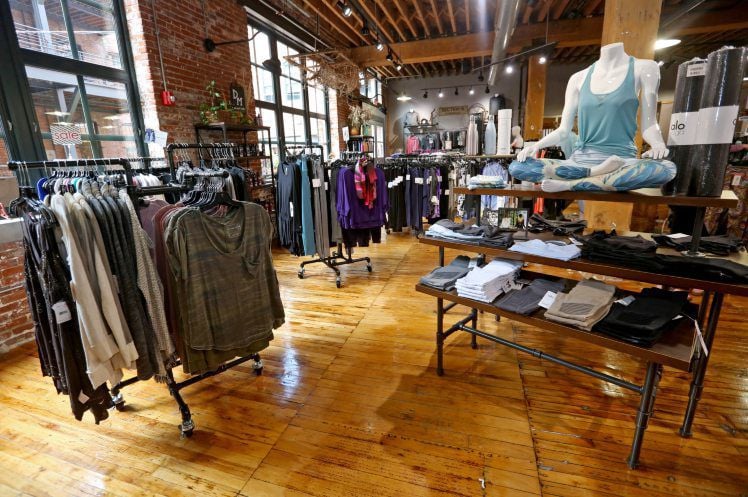If there’s one trendy thing your parents (and sometimes grandparents) are way ahead of you on it’s recycling.
Think about it. You’ve been in dad’s garage/basement/shed/workshop/weight room/cave of classic rock/World War II book depository, and you’ve seen all those glass jars filled with assorted screws/washers/bolts/nails/anchors/bits/bobs.
If you’ve been in mom’s craft room, you’ve inevitably seen old bottles repurposed as spindles or the occasional former sandwich bag hosting paint brushes.
In other words, they were upcycling before it was the cool thing to do in front of the neighbors.
So, what lessons can we take from the folks and what new depths of reuse we can plumb? Let’s take a tour:
In the garden
From growing food to composting, the humble home garden already is a wonderland of cutting costs and trimming leaves.
But, wait. There’s more.
When it comes to watering, the average family the U.S. uses about 400 gallons of water per day, with 30 percent of that going toward outdoor uses, according to the Environmental Protection Agency.
When you’re gardening, water is one of those key ingredients — along with soil and sunshine — that needs to be managed for a successful growing season.
Rainwater collection is one of those great, free ways to meet those thirsty plants’ needs without taking a hit to the wallet. You can even use recycled barrels for collection. And, while there has been many a rumor about local and state laws making rainwater collection illegal, for the most part those aren’t true. While many states (Illinois included) have laws that regulate the use of public water, there usually are acceptable use guidelines for harvesting rainwater by private individuals.
Plastic bottles have become a bane for a lot of environmentally minded people, but there are ways to put those potential ocean gyre creators to use for the good of the garden.
One way to save that plastic is to cut the bottom off bottles, remove the cap and use them as miniature cloches for seedlings.
Another use for plastic bottles, especially larger ones along the lines of laundry detergent, is to turn them into watering cans. Poke some holes in the lid and maybe remove that label to avoid confusion and you’ve got a cheap way to bring water to your plants.
Finally, herb gardens always are a fun option due to their (general) ease of growing, small space requirement and potential to make for delicious dishes. It’s a pretty simple matter to create a little garden by cutting off the bottoms of 2-liter bottles and using those bottoms as plant containers.
One of the most plentiful resources when starting or upgrading a garden is old pieces of wood. Rather than starting out with a brand spankin’ new 2-by-4 when you’re creating that raised garden, look into finding some already weathered wood. Or, when you’re considering a the structure of your raised garden, base it on old wooden pallets. There are several benefits to that, including a more interesting looking, more durable garden.
If saving money is at the top of your priority list, there are few reasons to ever go out and buy containers. Anything from old boots to used tires to empty yogurt cups can be upcycled into containers.
Around the house
Other than that little yellow recycling bin you fill up for garbage every week, there are many ways to recycle around the house.
Books are one of those household items that are the frequent target of KonMari’ing in our post-Marie Kondo world. There are a variety of resources that can put an old copy of “The Lord of the Rings” you don’t want cluttering your shelves into the hands of someone it could bring great joy.
Starting with your neighborhood, keep an eye out for Little Free Lending Libraries. A lot of people look at them as a resource for finding reading material, but an integral part of the process also is lending to the library in the first place.
Also, think about putting up a lot of them eBay or another online retail site. There’s every possibility that your junk is another person’s treasure. And, if you do it in a lot, it saves you the extra work of individually listing every edition of “Chicken Soup for …” you’ve held onto since 1996.
And, finally, don’t discount booksellers, bookstores and the like. You might think that old copy of “The Maltese Falcon” has little to no value, but do you know? All it takes is one decent find to make the trip worthwhile for both seller and buyer.
One of the fastest growing categories of household item is electronics. From TVs to cellphones to Wi-Fi enabled toaster ovens, it’s hard to get away from things with PCB boards and microchips in them.
The real questions get posed, though, when you try to figure out what to do with last year’s iPhone, not to mention that old CRT TV you’ve got in a closet.
If restoration/repair work is something you’re even vaguely interested in, there is a plethora of enthusiast-based resources online that can get you started down that road. TechMoan, The 8-Bit Guy and Spawn Wave are all YouTube channels that, while not specifically focused on how-tos, will give you an idea of what enthusiasts do on a basic level.
If refurbishment isn’t your bag and you don’t feel like learning, there’s a huge, complicated world of tech recycling out there.
At its core there’s one question you need to ask about any piece of technology: Does it work? The answer to that is going help you narrow down your options considerably. And, sometimes, even when the answer is “No” that doesn’t mean it’s not worth trying to sell.
If you’re just looking to get things out of your hair as safely and responsibly as possible (as Marie Kondo looks on with approval from her throne of discarded books, furniture and clothes) then take a look at the Dubuque Metropolitan Area Solid Waste Agency website at www.dmaswa.org.
Best Buy is another resources for recycling electronics. Its website (tinyurl.com/y7qkf2od) has a guide to what is accepted, what to do before recycling, whether something might be worth trading in and even has an option for pickups.
Finally, if you’re looking for other options and resources, Consumer Reports has a rundown at tinyurl.com/yyeqzd9x.
Anthony Frenzel writes for the Telegraph Herald.












